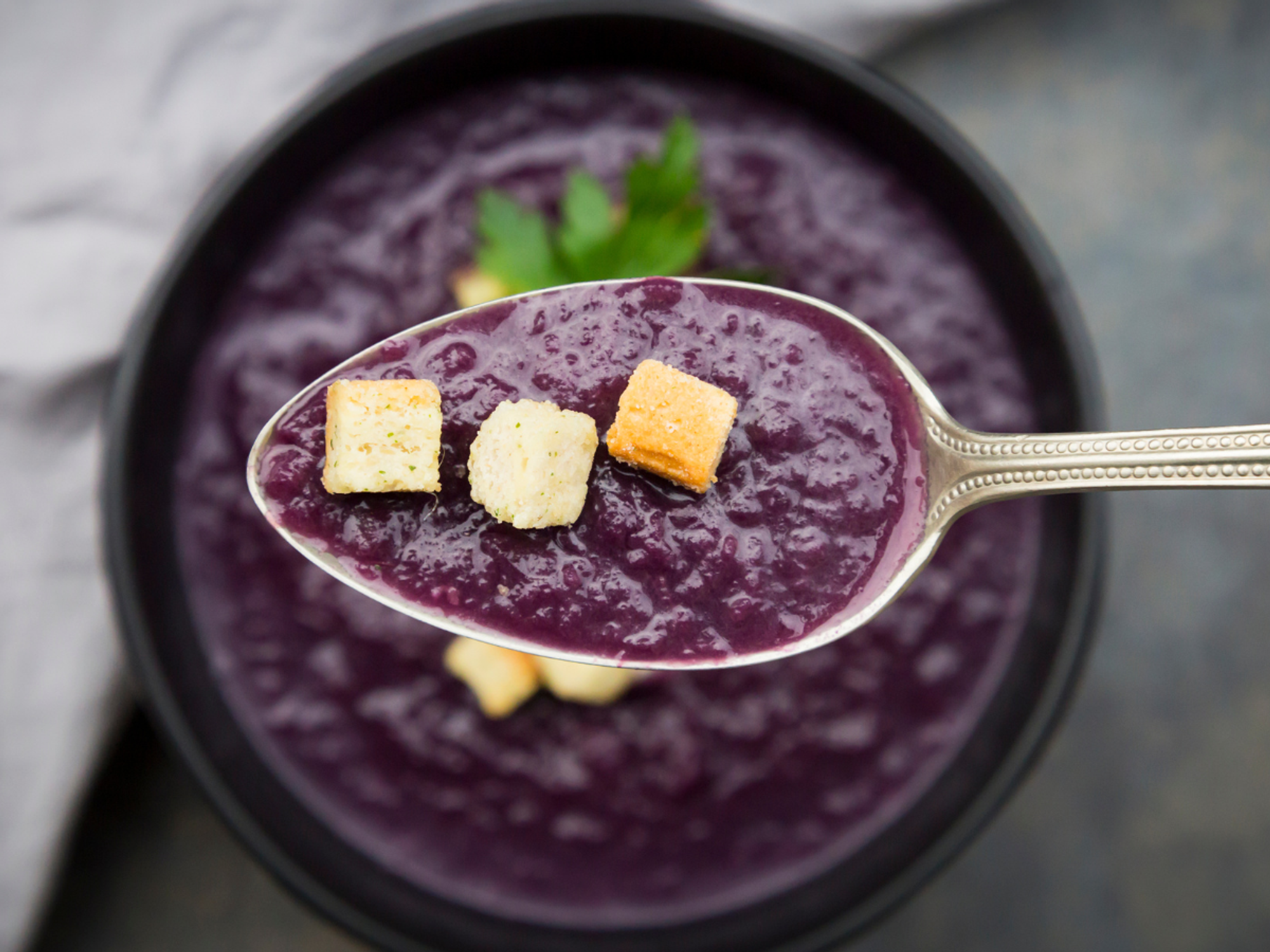Doctor Q&A: What are the worst fruits for high blood sugar levels? Dr Renee Hoenderkamp answers your questions

Celebrity NHS doctor Renée Hoenderkamp addresses GB News members' burning questions
|Doctor Renée Hoenderkamp

In this week's Q&A, celebrity NHS Doctor Renée Hoenderkamp reveals the riskiest fruits for high blood sugar, when it's safe to come off statins and fears over an allergic reaction to vaccination
Don't Miss
Most Read
Western medicine often suffers from myopic thinking: we have specialists for everything but rarely join the dots.
Eastern medicine treats the body (as you should) holistically.
The importance of this approach runs through the questions submitted to health@gbnews.uk for this week's Q&A, Doctor Hoenderkamp reveals the riskiest fruits for high blood sugar, when it's safe to come off statins and fears over an allergic reaction to vaccination.
Through her responses, our resident doc highlights the importance of seeing the bigger picture.
Last week, Doctor Renée Hoenderkamp addressed a peculiar manifestation of high blood pressure, fears over an uncommunicative child and how to alleviate the symptoms of IBS.
It's important to remember that the advice given below is general and not individual and you should always seek individualised health care from a doctor.
With those caveats aside, see below Doctor Hoenderkamp's answers to GB News members' burning questions.
Hey Renée, hoping you can help. I had a hepatitis B vaccination a few years ago and had a severe allergic reaction to it. My friend who is an anaesthetist says the human body can have a reaction to anything put into it but I am worried that I might be uniquely vulnerable to vaccination so worried about getting future vaccinations. Should I be concerned?
As a rule of thumb, your friend is correct, you can be allergic to absolutely anything, even those things that are apparently ‘hypo-allergenic’. It’s a very personal and individual reaction. Having said this, there are some things which are known to be triggers and more people than the odd one or two are allergic to them. These reactions can cause hives on the skin, itching, breathing difficulties and even full anaphylaxis.
When it comes to vaccines, certain ingredients are known to be a problem to those who have allergies. Whilst allergic reactions to these ingredients are rare, they can sometimes be serious and sadly even fatal. These reactions are IgE-mediated and immediate-type allergic reactions. Proteins are the main allergens and those most often implicated in vaccine allergies are egg and gelatine, and more rarely reactions to yeast or latex.
In terms of the Hepatitis vaccine, yeast seems to be the culprit in most cases as some brands have bakers yeast and yeast proteins in them.
It may not be the yeast however and there are other possibilities:
- Latex - The syringe may have a needle tip that is protected by a latex bung, which could cause severe allergies. People with less severe latex allergies may not be at risk.
- Aluminium - Some vaccines use adjuvants to enhance the immune response and aluminium salts is one such adjuvant which can also cause allergic reactions. This may cause persistent nodules at the injection site.
- Other ingredients in the hepatitis B vaccine may include water, salts, and formaldehyde.
So the answer to your question is that yes, you may have reactions to other vaccines, depending on what it was in the Hepatitis B vaccine that caused your allergy. It is impossible to know this for sure without carrying out specific allergy tests to the ingredients commonly found in vaccines, including egg, which is often the medium used in the process to produce vaccines. So I would suggest that you speak to your GP to refer you for allergy testing to put your mind at rest.
Hello, me and my sisters have familial hypercholesterolemia. We have been on statins for 20 years and we're concerned by this. Is it safe for us to come off?
You ask me an impossible question! I can’t give individual advice in this scenario, not least because your doctor is party to your history and disease progression. However, to try and help I did a literature search for you and came up with some studies that look at this very issue, so hope I can give you some pointers.
Hypercholesterolaemia or high cholesterol is often due to lifestyle and habits such as smoking, alcohol and a diet of ultra-processed food. However, for some it is totally genetic and this is termed Familial Hypercholesterolaemia (FH). About one in 250 people are affect with this inherited condition that means their cholesterol levels are higher than normal from birth. Carrying an abnormal gene that causes it, these people are at high risk of early heart disease. Cholesterol is critical for keeping our body functioning correctly, but if levels get too high, heart disease risk rises. The cholesterol produced by people with FH is not different but the risk is much higher because they are exposed to these high levels from birth and for a much longer time period. Realistically this means that someone who is 40 with FH could have the heart attack risk of a 70-year-old.
The advice therefore is for people with FH, alongside a healthy lifestyle for heart health, to be treated with statins to keep cholesterol levels within what is considered normal range. Usually, a high-intensity statin such as atorvastatin or rosuvastatin is used and there are studies to show that relatively low doses can do the job well.
Sometimes a different medication called ezetimibe is given alongside a statin. There is a good summary of the NICE guidance here.
In terms of stopping the damage caused by a much longer exposure time to raised cholesterol there are specific studies that look at this and the evidence seems to come down in favour of statins.
It concludes: “The results of the present study showed that statins, initiated in childhood, slowed the progression of carotid intima-media thickness and reduced the risk of cardiovascular disease in adulthood”.
There is a fair amount of data to suggest that people often discontinue statins due to adverse events and not being able to tolerate them, but there is not much data in FH. I did find a study that looked at the pros and cons and may give you a steer.
But having a little root around, my take is that having taken them for 20 years, you will have reduced the damage from having FH during a period when most people do not have damaging levels of cholesterols so this is beneficial. In terms of stopping, you should discuss this with a cardiologist and explain your concerns. The things to consider now are how healthy a heart lifestyle you personally have; is your BMI under 25? Do you exercise four days a week? Do you drink alcohol? Is your diet fresh, non processed with a full panel of nutrients? If the answer is yes to those, then you could discuss with your doctor stopping statins and checking your cholesterol in three to six months to re-evaluate your individual situation.
Hey Renée, are there any fruits to avoid if you have high blood sugar levels? I know fruits can contain simple sugars so never know how to play it with my diet! Would appreciate your input, thank you
The most important message I would give, is moderation, everything in moderation, even moderation.
We should all be eating fruit and veg daily but you are right, a little more thought may need to be applied to fruit, but more must be given overall to added sugars and complex carbohydrates to be honest.
Fruit (and vegetables) are associated with a lower risk of heart disease and cancers whilst providing crucial fibre, vitamins and minerals. The sugar in whole fruit doesn’t count towards free sugars, so as a rule, doesn’t need to be cut down but this doesn’t apply to dried fruit, fruit juices, honey and smoothies which have most of the roughage removed or already broken down, so are very easy to drink/eat and digest. So these should be avoided or at least limited in serving size, which is often
much smaller than people think. To give an example; a portion of dried fruit is around 30g, just one heaped tablespoon of raisins, currants or sultanas, two figs or three prunes.
The amount of carbohydrate you eat has the biggest effect on your blood glucose level. Compare:
- 1 medium apple 15 to 20g carbs
- 1 large banana 50g carbs
- 1 chocolate muffin 55g carbs
- 1 500ml plain fizzy drink 54g carbs
So it is always better to reduce your intake of chocolate, cakes, snacks and sugary drinks than whole fruit.
But so as to fully answer your questions, some fruits are known to spike blood sugar over others and bananas are top of the list, grapes, jackfruit and mangos are also baddies in this respect. However, there are ways around this and eating these foods with a little appetiser of protein, fat, or fibre, such as cheese, whole grains, lean meats, nuts, and seeds before the fruits which is a proven way of reducing that spike.
And this is probably worthwhile when you consider the various nutrients different fruits supply. I hope this helps and good luck!







